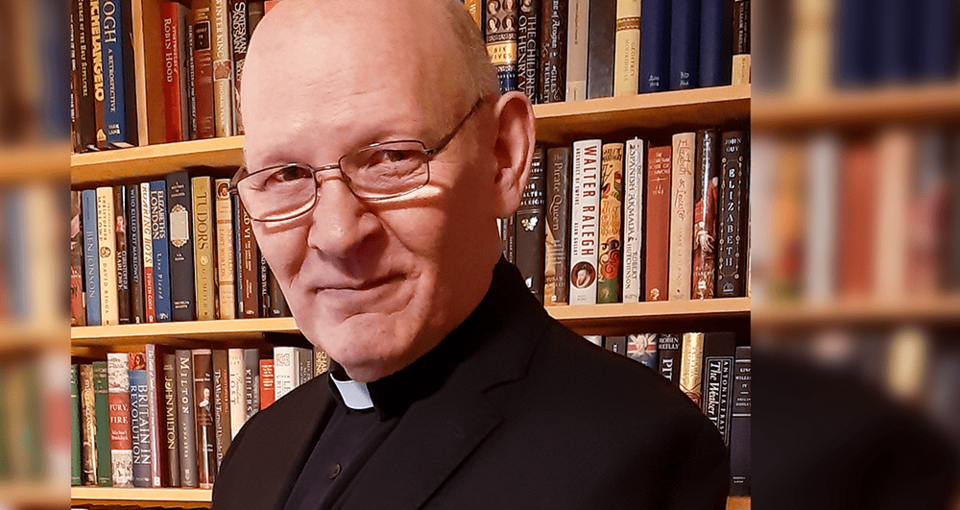The daughter of the late archbishop Desmond Tutu, a tireless campaigner against apartheid, revered human rights activist, Nobel prizewinner, and once one of the most famous Anglicans in the world, has been barred by the Church of England from officiating at the funeral of her godfather Martin Kenyon, one of her father’s dearest friends.
The reason is that Mpho Tutu van Furth, formerly an ordained Anglican priest in South Africa, is married to another woman, and while Anglican churches in the US, most of Canada, and other parts of the Communion marry same-sex couples and fully accept openly gay and married people as clergy, the English church has a more “nuanced” position. Priests may be gay, may enter into civil partnerships, but on the assumption that they are celibate.
It is, of course, a tediously inconsistent stance, layered with convenient dishonesty, and generally only tested when a gay priest seeks to become a bishop or, as in this case, a high-profile figure is involved. It’s made all the more challenging for the Church of England because in 2016 Tutu van Furth was forced to give up her right to officiate as a priest in South Africa because she married another woman. But she remains a priest in the Diocese of Washington DC.
Thus, even though the 92-year-old Kenyon had directly asked his goddaughter to conduct his funeral, the church said no. In the end, the ceremony was moved from the original location in St. Michael and All Angels church in Wentnor, Shropshire, to a nearby marquee so that Tutu van Furth could preside. It happened, but not as it was planned.
The couple married in 2015, and now live in The Netherlands. Marceline Tutu van Furth said of her wife, “She can’t do something out of love for her godfather and for the family just because of the same-sex marriage, and that’s something that upsets me.” Mpho Tutu van Furth herself said, “It's incredibly sad. It feels like a bureaucratic response with maybe a lack of compassion. It seemed really churlish and hurtful. But as sad as that was, there was the joy of having a celebration of a person who could throw open the door to people who are sometimes excluded.”
The Diocese of Hereford stated, “We acknowledge this is a difficult situation,” but that, "Advice was given in line with the House of Bishops current guidance on same-sex marriage.”
That advice may well have mentioned those African churches that just last month, at the Lambeth Conference in Canterbury, had made such a fuss over LGBTQ2 affirmation and equal marriage. They would have been extremely angry if such a well-known figure as Mpho Tutu van Furth had been allowed to officiate.
Technically, Hereford Diocese had little choice. Morally and theologically it’s rather different. There are many Christians — including myself — who see clear and compelling Biblical arguments for equality. That view is increasingly dominant in North America and western Europe, but not in Africa, the Caribbean, and parts of Asia. In England itself, the conservative and evangelical wing of the church is generally opposed to full affirmation and has become increasingly organized and active in recent years.
In Africa, where the Anglican Church is large and growing, there are threats to leave the Anglican Communion if the subject is pursued, and even doubts about the future of the Anglican Church as an international body. That would be a tragedy, and Archbishop of Canterbury Justin Welby is trying — with, it must be said, a certain skill and delicacy — to keep a divided church together over this deeply personal and emotional subject.
Desmond Tutu himself had no doubts. He gave his blessing to his daughter’s marriage, and said, “I would refuse to go to a homophobic heaven … I would not worship a God who is homophobic and that is how deeply I feel about this.” He added: “I am as passionate about this campaign as I ever was about apartheid.”
So, in an increasingly angry and wounded world where the church could play such a vital role, we still argue about how and whom people are allowed to love. It baffles younger people, it makes Christianity seem reactionary at a time when churches are struggling to show the true face of Gospel compassion, and it hurts people for no reason. Jesus wept. So, I imagine, does Desmond Tutu. If I’m candid, so does this middle-aged straight priest, husband, father, and grandfather, who wishes that we could all just move on.



